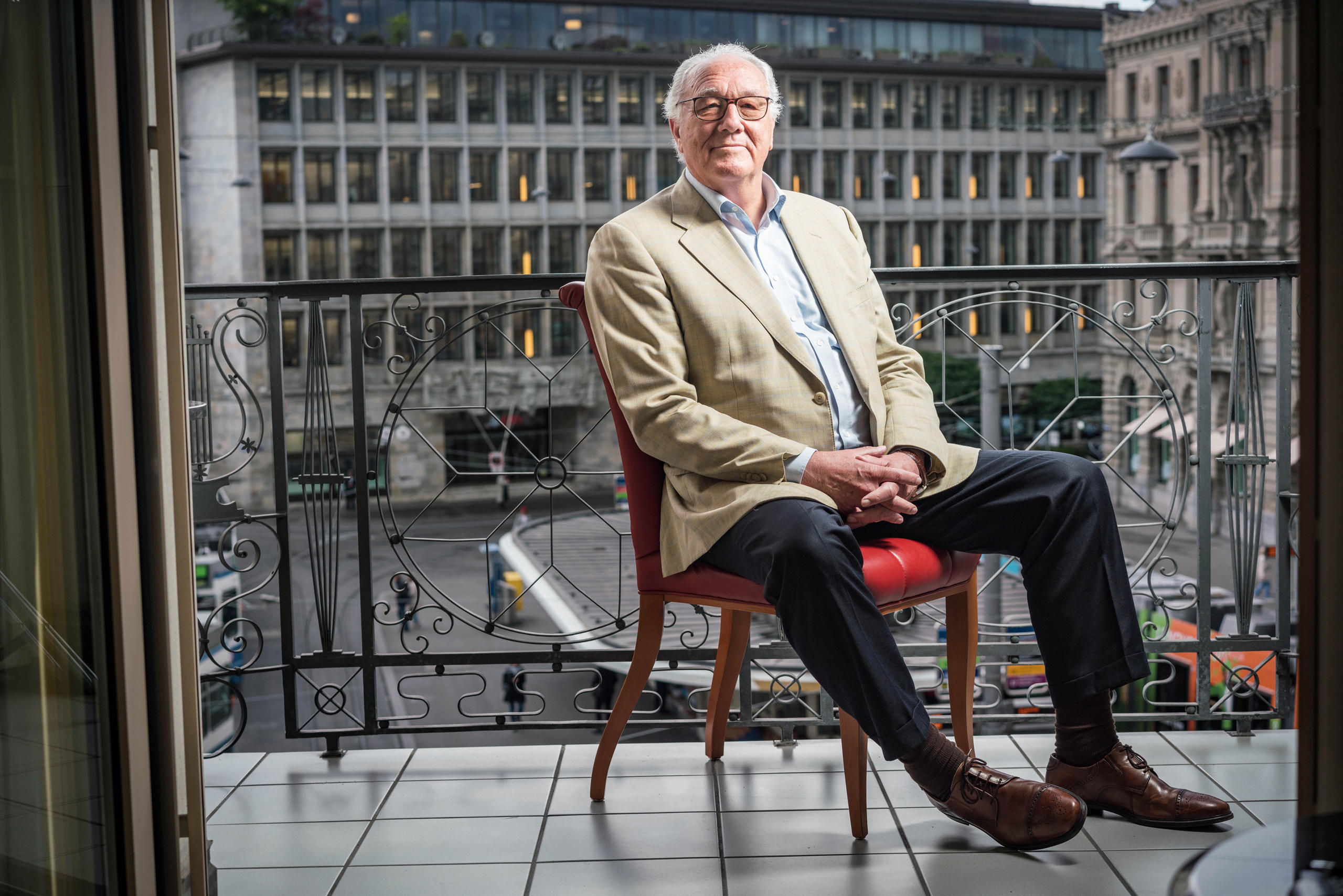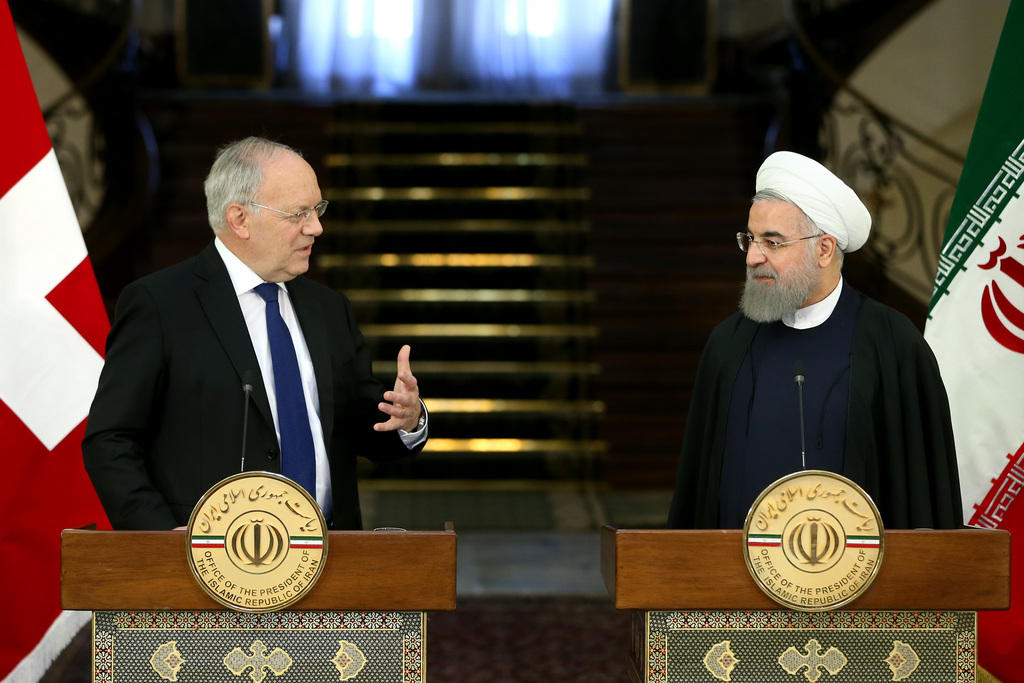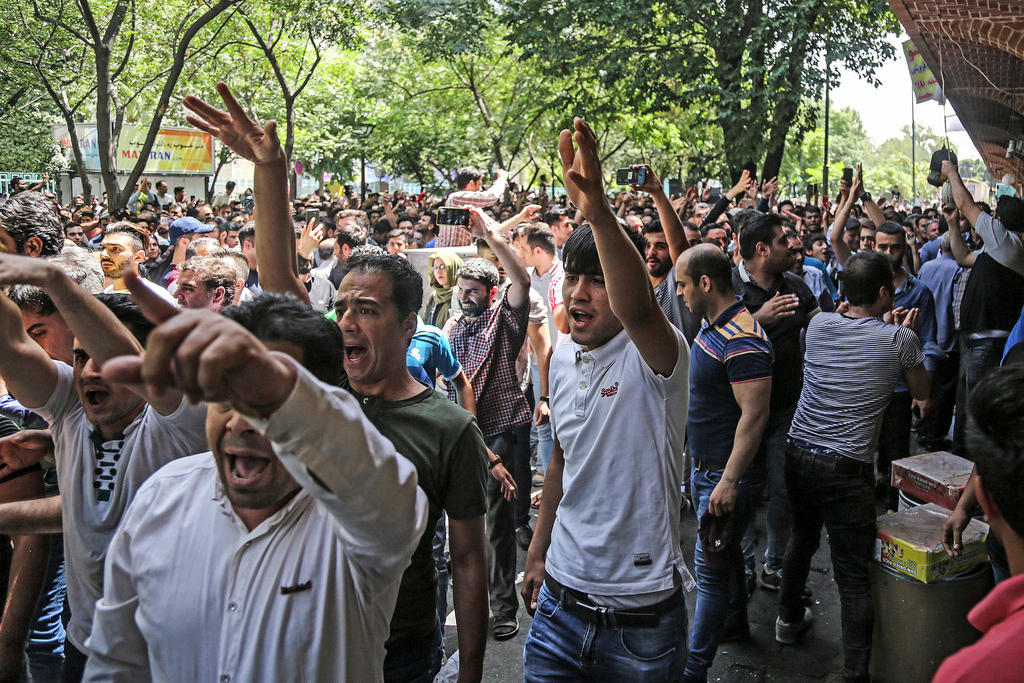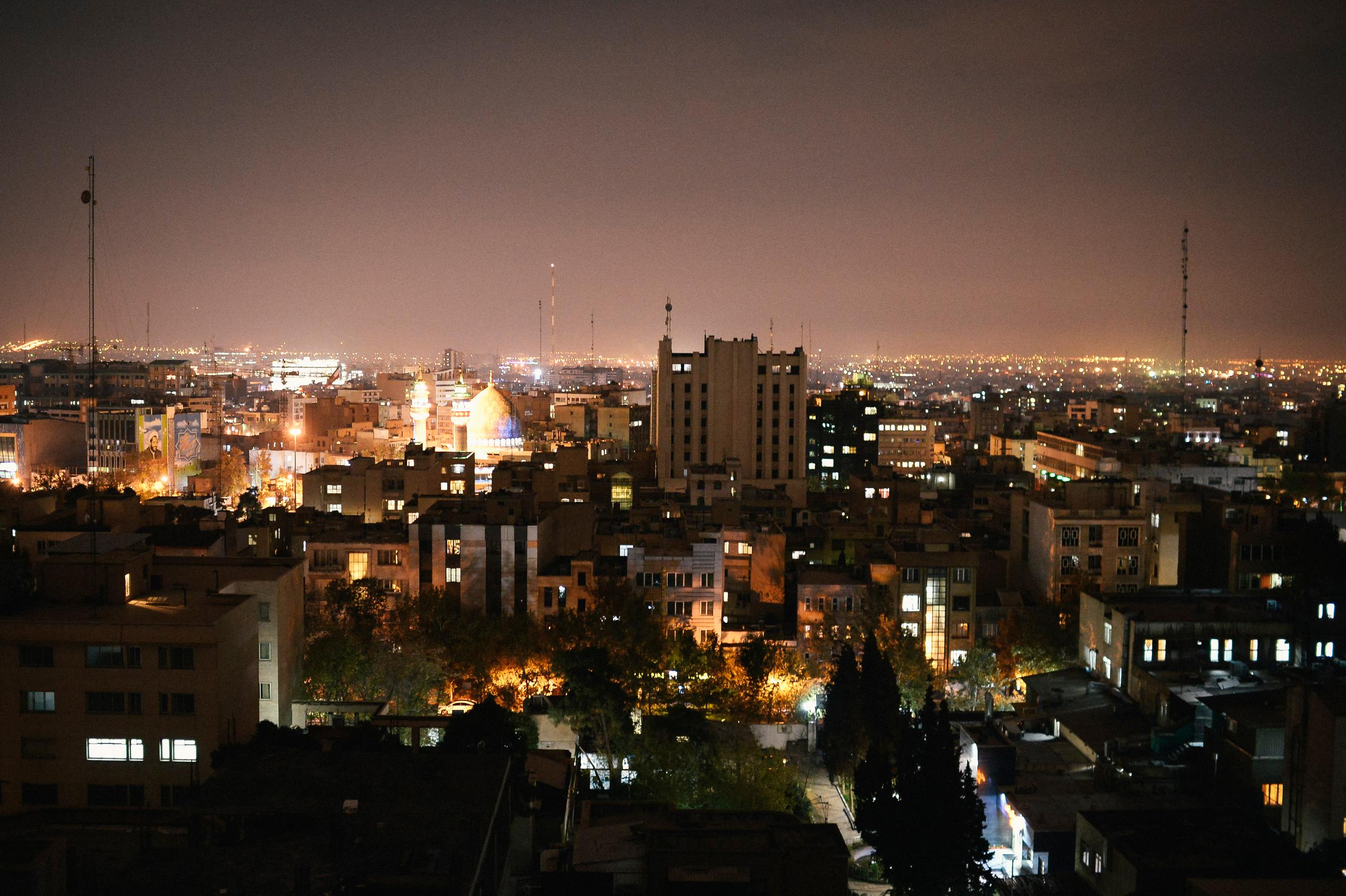
‘Iranians crave European culture’

As Iranian President Hassan Rouhani pays an official visit to Switzerland, a former Swiss ambassador to Tehran explains Iran’s complicated relationship with the West, how the international nuclear deal changed everyday life – and why Donald Trump is disastrous for the region.
Philippe Welti was Switzerland’s man in Iran from 2004 to 2008. In a recent interview with Schweizer Illustrierte, a Swiss weekly magazine, he remembers how the Swiss were trying to defuse the conflict in Iran just as the pre-Obama United States wanted the opposite.

More
Iranian president to pay official visit to Switzerland
He also discusses Switzerland’s reputation in Iran and, rather unreassuringly, why “everyone should be afraid”.
Mr Welti, when was the last time you were in Iran?
Philippe Welti: In February, as president of the Swiss-Iranian chamber of commerce. It was the first meeting of the mixed committees. It was a very good meeting.
What was it about?
P.W.: How to implement the trade agreement with Switzerland – which I was involved in creating. Fond memories! When I was ambassador back in 2005, I was on a skiing holiday in Switzerland and I got a phone call from Bern. I was told to get in touch with the then economics minister, Joseph Deiss – someone whom the media always underestimated, by the way! It was to do with this agreement with Iran. He asked me whether he should sign it.
There was internal resistance to signing it. My recommendation to him was “Signez!” – a view he clearly shared. But because of sanctions against Iran the agreement was mothballed. After the sanctions were lifted in 2016, it was finally ratified. Iran is interested in doing business with Switzerland.
+ Switzerland-Iran bilateral relationsExternal link
US President Donald Trump has pulled the US out of the international nuclear deal with Iran and re-imposed sanctions on the country. What does that mean?
P.W.: The decision forbids and punishes doing business with Iran. It applies to the whole world – but above all the European signatories of the deal: Britain, France, Germany and the EU.
Trump is saying “We rule the world”. The aim of his sanctions is to isolate Iran economically. If you don’t play along, you’ll be punished. That’s an outrageous power grab! 150 years ago this provocation would have amounted to a declaration of war.
Trump claims Iran is building a nuclear bomb on the sly.
P.W.: The international nuclear watchdog has confirmed that Iran has frozen its [nuclear] programme. It’s the lesson for Kim Jong-un: if you have the bomb, you might be unpopular but your country won’t be attacked. That’s why Kim Jong-un will never disarm in North Korea.
You were Swiss ambassador to Iran from 2004 to 2008. What are your memories of your time there?
P.W.: Very good ones! I lived in Tehran in a beautiful residence, which unfortunately no longer exists. As a result of the sanctions Iran’s economy got worse and worse. Unlike North Koreans, Iranians knew the world. They felt excluded.
President Rouhani knew when he was elected for the first time in 2013 that he had to improve people’s lives. He knew that was possible only without sanctions. And these would only be lifted with concessions regarding the nuclear situation. That was the deal.

Did you work on the historic nuclear agreement?
P.W.: In the beginning I set up and accompanied the talks between the then state secretary Michael Ambühl, on behalf of Foreign Affairs Minister Micheline Calmy-Rey, and the Iranian negotiating delegation.
Switzerland’s role was always special. Because of American interests – not nuclear ones! The Swiss reflex was definitely “There’s a risk of conflict here. We want to help defuse it”. But the Americans wanted conflict. They wanted more and more sanctions.
Until the arrival of Barack Obama and the 2015 nuclear deal and easing of sanctions.
P.W.: Yes, but that was after my time!
How did the deal change the country?
P.W.: It certainly made the situation more relaxed. In street scenes, for example. Women had greater choice over what they could wear. People’s feelings changed too. Many of my friends said things were just easier.
Philippe Welti
Philippe Welti was born in Zurich in 1949 and joined the diplomatic service in 1979.
In 1996, he was appointed Deputy Head of Mission at the Swiss embassy in Bonn, Germany.
He later headed the Directorate for Security Policy of the Department of Defence in Bern and frequently represented the Swiss defence minister at meetings of the Euro-Atlantic Partnership Council.
From 2004-2008 he was Swiss ambassador to Iran and until 2011 ambassador to India.
His daughter is singer-songwriter Sophie Hunger.
Why are you working for a country whose mullah regime jails critics and suppresses any form of freedom online?
P.W.: I’m working for the 80 million people with a 2,500-year history who are very kind and who are very close to us mentally and culturally.
In what way?
P.W.: Iranians are an Indo-European people in a non-Indo-European environment. You can see that just by looking at their language, Farsi. You recognise the Indo-European stems and endings. Iranians love Europe and think in a European way. But they also love the US – unfortunately.
Despite how the US treats them?
P.W.: That’s the grotesque thing. On the one hand you’ve got a people who dream of America night and day. On the other, you’ve got a government that keeps making anti-American statements. In the rest of the Middle East America is frowned upon, but the regimes are US allies.
Has Trump’s decision strengthened the mullahs in Iran?
P.W.: The mosques are practically empty. Under the mullahs, people have become more secular than ever.
What’s the view of Swiss companies active in Iran?
P.W.: If they want to protect their companies in the US from Trump, they’ll have to stop doing business in Iran.
So the 120 trains from Stadler Rail can’t be delivered to Tehran?
P.W.: I don’t know what CEO Peter Spuhler will do. He could forgo doing business with the US. Mind you, he’s also built a factory there. That will hit him particularly hard. In fact the only firms that have a chance are those that don’t have to choose between the American and Iranian markets. And there aren’t many Swiss ones in that position.
Economics Minister Johann Schneider-Ammann and Foreign Affairs Minister Ignazio Cassis surely have to have a word with Trump?
P.W.: At the moment the Swiss export economy doesn’t have any flexibility. Everyone’s just focused on at the next moves by European governments and the EU. But it would be wrong now for the Federal Council to do nothing and no longer look after bilateral relations with Iran.
Couldn’t Switzerland at least set an example culturally in Iran?
P.W.: Iranians crave European culture. Culturally, Switzerland can offer a lot of inspiration. It’s nice, as an ambassador in Iran, to launch cultural initiatives; I was able to do a lot. Whenever I organised an event in Iran, everyone would come and would bring their cousin. OK, they came an hour late – but they came!
So Culture Minister Alain Berset should go there!
P.W.: He could at least encourage artists and creative people to do something. The same goes for science. Many ties exist with Iran here too. Mind you, scientific cooperation is again coming to an end, with IBM telling Iranian students in Switzerland that they’re not allowed to use a high-tech laboratory. All because of the psychotic belief that anyone who works in a lab will run out and build a nuclear bomb.
Iran, Israel, Saudi Arabia: the Middle East is a powder keg. That makes people afraid – in Switzerland too.
P.W.: Trump’s decision has made the situation in the Middle East considerably worse. He’s keeping a reservoir of terrorists alive. Everyone should be afraid. The Americans included. In the short term the losers are everyone who’s affected by sanctions. In the long term, America will pay a price.
What price?
P.W.: No country blatantly fails to honour contracts as much as the US; no ally is as unreliable as the US. That’s a lesson for the world. Kim Jong-un will also take note. That’s why the Europeans have to reinvent their strategic thinking.
What kind of reputation does Switzerland have in Iran?
P.W.: An excellent one! We have the nicest people, the best machines, the best science, we’re the most generous. We’re a dream country!
Despite representing US interests in Iran since 1980?
P.W.: Yes, the government is very happy that Switzerland represents these interests!
Maybe this role will mean Trump will turn a blind eye to Switzerland?
P.W.: No, I don’t think so.

More
Iran and the Swiss connection – a guide
(Translated from German by Thomas Stephens)

In compliance with the JTI standards
More: SWI swissinfo.ch certified by the Journalism Trust Initiative































You can find an overview of ongoing debates with our journalists here . Please join us!
If you want to start a conversation about a topic raised in this article or want to report factual errors, email us at english@swissinfo.ch.